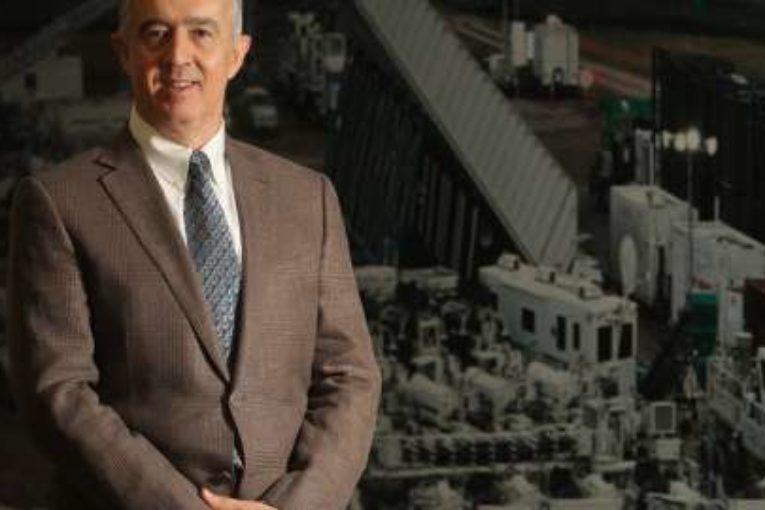
British Columbia’s new NDP/Green coalition government was in damage control mode after the most ambitious of the province’s proposed liquefied natural gas (LNG) projects, the $36-billion Pacific NorthWest LNG, was cancelled Tuesday.
Both the province and the Malaysian company that proposed it blamed poor global LNG market conditions. The truth is that what should have been a magnificent new Canadian industry, building middle-class jobs from exporting Western Canada’s world-class Montney shale gas to reduce carbon pollution in Asia, has unraveled due in large part to government mishandling — plus fears it would have only accelerated under the new, anti-development provincial government.
New B.C. Premier John Horgan repeatedly singled out Pacific NorthWest LNG during his election campaign as one that was âpoorly sited.â
The proof is that the LNG export industry is thriving in the United States under the same global market conditions, while B.C. has yet to see the construction of a single project out of 20 or so proposed since 2011.
Dennis McConaghy, a former senior executive at energy company TransCanada Corp., called the decision “a tragedy for Canada … a real condemnation of this country and the utterly unproductive entities in it that simply make any development virtually impossible.”
With energy prices collapsing globally, and the business in B.C. having a tough time remaining viable, Pacific NorthWest LNG needed less, not more government costs and regulations to stay in the game.
Instead, the new provincial government jacked up its demands, including higher carbon taxes, a “fair” return for resources (read a bigger provincial take), partnerships with First Nations (read fatter benefits agreements), protection for “our air, land and water including living up to our climate change commitments,” as outlined in Premier John Horgan’s mandate letter to the new energy minister, Michelle Mungall.
To make matters worse, Horgan repeatedly singled out Pacific NorthWest LNG during his election campaign as one that was “poorly sited” and that he would relocate (read another environmental assessment and, of course, more costs).
The news came after the former provincial Liberal government’s drawn-out drama to come up with fiscal terms, a federal regulatory review that dragged on for three years and opposition and lawsuits from aboriginals and environmentalists worried about the impact on everything from climate change to migrating salmon.
“It’s hard to find anything so mishandled,” said former Newfoundland Premier Brian Peckford, who now lives on Vancouver Island. “Sitting on trillions of cubic feet of reserves in northeast B.C., the B.C. government dilly-dallied … by the time (it) got around to a royalty/tax structure for the various projects lined up to go, it was too late. The Australian and American interests had outflanked them and the rest is history.”
In response to the announcement, Mungall said her government is “committed to working with the LNG industry to ensure we are competitive” and reached out to other proponents to “ensure that we are ready to work with them going forward and have a road map for full realization of their projects.”
Those include the Royal Dutch Shell PLC led LNG Canada project, which is expected to decide by the end of next year whether to move forward, and Woodfibre LNG Ltd. Both are going through the same process as Pacific NorthWest LNG – looking for cost savings to match lower gas prices.
Meanwhile, the provincial government will support natural gas production, Mungall said. It’ll be interesting to see how that part of the industry is handled, after the NDP promised a review of fracking that could also mean more costs and delays.
The death of the LNG project follows an exodus of international companies from Alberta’s oil and gas sector for the same reasons: high costs (including carbon taxes) and slow regulatory processes compared to competing jurisdictions.
The capital flight is rightly worrying the Canadian Chamber of Commerce. President Perrin Beatty, in a letter Tuesday, asked Prime Minister Justin Trudeau to find ways to cut business costs to offset the impact of an emissions plan that includes a minimum carbon price beginning next year. “The cost of doing business in Canada is rising,” Beatty said in the letter, which was also sent to the country’s provincial premiers.
Petronas isn’t leaving Canada — for now. It has invested about $11 billion out of the $36 billion so far, including $10 billion to purchase Progress Energy Corp. and to drill for gas in the Montney, $400 million to develop the export terminal site near Prince Rupert, and another $500 million for planning to build a pipeline.
“We continue to believe that an LNG industry can thrive in British Columbia with the right project at the right time,” Anuar Taib, chairman of the Pacific NorthWest LNG board of directors, told reporters. “Our experience tells us that the development of the LNG business requires a long-term view of the market, world-class natural gas resources, competitive project cost and supportive market conditions.” But there is no going back on the LNG decision, he said, and all options will be looked at to monetize and develop the resource.
The company said it hasn’t locked up deals with U.S. LNG export facilities. Don’t be surprised if that’s where Petronas — and partners Japex, Petroleum Brunei, Indian Oil Corp. and Sinopec — end up shipping their B.C. Montney gas, instead of through the terminal they wanted to build on the much-closer B.C. coast, leaving less money on the table for Canadian governments with big expectations.
Financial Post
You can read more of the news on source
